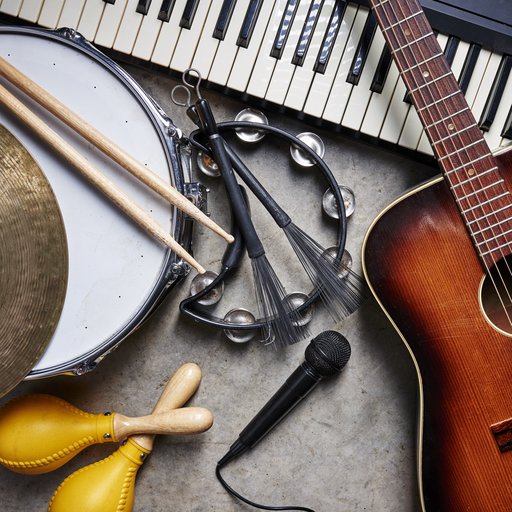When it Comes to Music Education, One Size Doesn’t Fit All
October 13, 2021

Music class can change a student’s life, especially when they’re met where they’re at. Most music programs in Canada are rooted in a Western tradition, which does not reflect the varied cultures, interests, and needs of students across the country. Although many music educators recognize these gaps and want to make a change, it can be a challenge to acquire the instruments and resources needed to broaden what music education can look like at their school.
The MusiCounts Band Aid Program celebrates diversity in music education; from Orff to orchestra or DJ consoles to Djembe drums, MusiCounts has invested over $11.5M in 1,215 schools over 24 years to give educators the tools they need to keep music education alive - and relevant - at their schools.
At David Suzuki Secondary School in Brampton, ON, music teacher Darren Hamilton understands that the best music program is the one that reflects students’ diverse backgrounds and piques their interests. Darren recognized that many Black students were not participating in the school’s standard music programming. In turn, he surveyed students to better understand this. The survey revealed that over half of Black students that hadn’t enrolled in music programming that year would take a Black-focused music course if one were offered. This result suggests a marked increase in interest; only 16% of students surveyed had previously participated in the school’s concert band or music and computers courses.
While the school’s other music programs were doing well as a whole, the survey made it clear that this music program was not representative of many students it was meant to serve. This fall, with the help of the MusiCounts Band Aid Program, Darren will launch a new Integrated Arts course called "The Sights and Sounds of Hip Hop and R&B," in which students will have the opportunity to learn about Black culture and history while gaining practical skills on a brand new class set of DJ consoles.
We are all more capable than we realize.
-Sarah Russell, Music Teacher at Jaanimmarik School in Kuujjuaq, Nunavik (QC)There’s no doubt that music class can have an incredibly positive impact on students’ mental wellness. Sarah Russell, the music teacher at Jaanimmarik School in Kuujjuaq, Nunavik (QC) understands this all too well. The remote community where she teaches is made up of many Inuit students who live in an isolated community, where the impact of a history of colonization, cultural oppression, and intergenerational trauma continues to feed a suicide crisis amongst young people in the community. “I work in a trauma-informed school and teaching students to be mindful and in the present moment is a school-wide objective,” said Sarah, indicating that music classes can provide healthy coping mechanisms and a sense of belonging.
Recognizing a deep need that was made worse by the pandemic, Sarah applied for - and received! - a MusiCounts Band Aid Program grant, which she’s used to hire an Elder to make Inuit drums for the students to connect with their culture, and to purchase RAV drums to allow students to explore sound in a mindful and creative way. “Drumming is such a huge part of my program,” she notes. “It's the heartbeat. It's life. It connects.”


Sometimes the challenge in creating an inclusive music classroom is acquiring musical instruments that are suitable for students of all abilities. Before receiving a MusiCounts Band Aid Program grant in 2019, Lucy McCormick Senior School in Toronto, ON had no specialized instruments designed specifically for its student population, all with physical and cognitive exceptionalities. Now, the school is able to offer a music program that is more inclusive and accessible; with their set of adaptive instruments, many students are learning to communicate and express themselves in new ways. In 2019, the MusiCounts team had the privilege of visiting the staff and students at Lucy McCormick Senior School, where we were able to see firsthand music's unique ability to help students at the school connect.

MusiCounts Band Aid Program
Have an approach to music education you’d like to explore at your school? Applications for up to $15,000 for musical instruments, equipment, and resources through the MusiCounts Band Aid Program are open until November 25.
As educator Mark Reid so aptly put it at the MusiCounts Learn Town Hall: Back to School Conversation, “[music] is not a universal language; it is, however, a collection of languages.” Music educators should be encouraged to celebrate every dialect of music that they can. According to Sarah Russell, “there are so many opportunities to perform and create and learn from others” in the music classroom, but this is only possible with the necessary resources. MusiCounts is thrilled to invest in all approaches to music education through the MusiCounts Band Aid Program to empower teachers to foster the most inclusive and representative classroom they can.